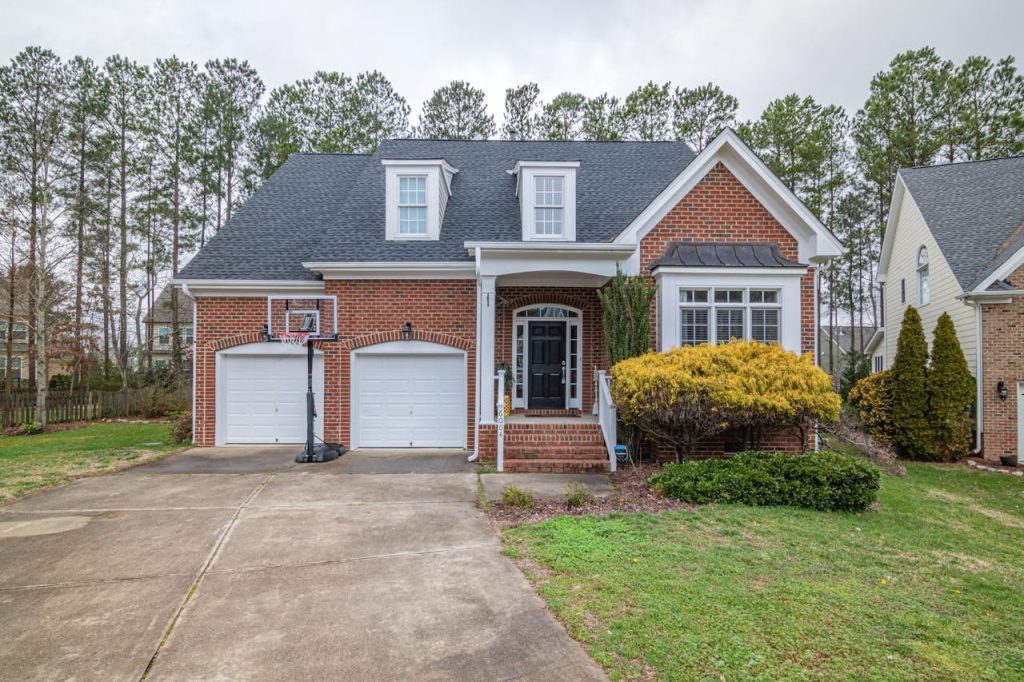This guide covers everything you need to know. It will help you handle the process, whether you want to sell fast or weigh your options.
Understanding the Tenant-Occupied Home Sale
The procedure of selling a house with tenants can be more involved than that of selling a house that is empty. The particular difficulties posed by a tenant-occupied property must be addressed. Tenant rights, leasing agreements, and buyer expectations are a few of these.
Here's a closer look at the legal framework and marketing tactics you should be aware of when selling a house that has tenants.
Selling Rental Property with Tenants: An Overview
Selling a property with tenants isn’t the same as selling a vacant home. You’re dealing with legal obligations, tenant rights, and lease agreements that all affect the sale. The goal is to make sure you’re transparent with potential buyers and compliant with the laws that protect tenants.
Key Differences Between Selling a Vacant Property vs. a Tenant-Occupied Property
When you sell a vacant property, the only thing standing between you and a sale is finding a buyer. With tenants, you're offering a rental income stream to potential investors—but that also comes with limitations. Owner-occupants may shy away unless the lease is ending soon or tenants are willing to leave early. Be clear upfront to avoid complications later.
Pros and Cons of Selling Property with Tenants
Renting out a property can provide challenges when it comes to selling it. On the one side, it attracts investors and provides advantages like steady rental revenue. However, it may narrow down your field of potential buyers and make tenant cooperation difficult.
To decide if selling while you have tenants is the best course of action for you, you must carefully consider these benefits and drawbacks. Let's examine the benefits and possible downsides.
Pros
• Stable Income: You will keep collecting rent while your property is on the market, which is useful if the sale process takes time.
• Investor Appeal: Real estate investors might find a property with tenants more attractive since they’ll start earning rental income right away.
• Reduced Vacancy Risk: Your property won’t sit empty, which can give it a better appeal compared to vacant homes that might seem neglected.
Cons
• Limited Buyer Pool: Owner-occupants prefer vacant homes. So, your potential buyer pool is smaller.
• Tenant Cooperation: Tenants may resist showings. This can complicate things, especially if they oppose the sale.
• Legal and Lease Complications: You must know tenant rights and lease agreements. If not, it can complicate the process.
Challenges of Selling a House with Tenants
There are extra obstacles to overcome when selling a home that has renters living in it. We have a few obstacles to overcome. These include negotiating legal rights, controlling tenant cooperation, and striking a balance between showings and tenant schedules.
A successful and seamless transaction depends on your ability to recognize these obstacles
and know how to overcome them. Selling a home that has renters entails a number of obstacles.
Handling Tenants During Property Sale
Cooperation and Communication
Clear, early communication is essential. Let your tenants know your intentions, explain the timeline, and keep them updated throughout the process. You might need to offer incentives, like a temporary rent reduction or help with moving expenses, to ensure their cooperation. Make sure you put any agreements in writing to avoid future misunderstandings.
Managing Showings
Showings are tricky when tenants are involved. To minimize disruption, schedule showings in blocks rather than constantly interrupting their schedule. Always give proper notice according to local laws and keep your tenants in the loop.
Legal Considerations
Tenant Rights During Property Sale
In most places, tenants can't be evicted just because the property is being sold. Their lease terms remain intact, and the new owner inherits those terms. Make sure you're fully aware of your tenant's rights to avoid legal trouble down the road.
Lease Agreements and Property Sale
The type of lease your tenant has will significantly impact the sale. If it's a month-to-month lease, the buyer may want to move in shortly after the sale. A long-term lease, however, binds the new owner to the existing terms, which can limit flexibility.
Eviction Process When Selling a Property
Evicting a tenant during the sale should be a last resort, but if necessary, it’s crucial to follow your state’s eviction process. Consult a legal professional if you need to go down this route, as improperly handled evictions can result in delays or legal action.
How to Prepare a Rental Property for Sale
Selling a rental property involves a little more skill than selling an empty house. Tenant privacy and the property's desirability to potential buyers must be balanced. It's critical to showcase your rental in the best possible light while accommodating your tenant's presence, from marketing to property upkeep.
Here's how to prepare your rental home for sale while maintaining a seamless rental experience for both you and your tenants. Selling a house with tenants entails additional procedures. It needs to be as presentable as possible without going over tenant limits.
Condition of the Property
First impressions count, and you want your property to shine. Hire pros for a deep clean or minor repairs if needed. This can greatly affect a buyer's perception of the home, especially if tenants have neglected it.
Marketing Strategies for Tenant-Occupied Properties
Emphasize the advantages for investors, including low vacancy rates, consistent rental income, and any upgrades completed. Properties that generate revenue and require little maintenance are very appealing to investors. Be honest about the tenant status and potential move-out dates if you're marketing to owner-occupants.
Offering Rent Reductions or Moving Assistance
Incentives, like a rent reduction or moving help, can secure tenant cooperation. A little goodwill can lead to a faster, smoother sale, and keep things amicable.
Negotiating Lease Termination with Tenants
You might have to work out an early termination agreement with the tenants if your buyer wants the property empty. This can be a simpler process if you provide them with a monetary incentive or assist them in moving.

Impact of Rent-Controlled Areas on Property Sale
Selling a property in a rent-controlled area adds another layer of complexity.
Rent Control Regulations
In rent-controlled areas, there are strict limits on how much you can increase the rent. These laws can affect the property's marketability and value. So, you need to know them before listing the property.
Impact on Property Value
Rent-controlled properties might not attract as many buyers due to the restrictions on rent increases. However, in desirable areas, these properties may still be highly valued because of their long-term rental stability. It all depends on the market and location.
Investor Buyers vs. Owner-Occupant Buyers
Your strategy will differ depending on whether you’re targeting investors or owner-occupants.
Investor Buyers
Investors are often drawn to tenant-occupied properties because they provide instant rental income. If the tenants have a solid payment history, present this as a selling point. Doctor Homes, for instance, specializes in connecting sellers with the right investors, making the process seamless.
Considerations for Investors
Investors will be looking at factors like tenant stability, the property’s condition, and the income it generates. Be sure to have all necessary documentation ready—like rent records, lease terms, and maintenance reports—to reassure them that the property is a good investment.
Owner-Occupant Buyers
Owner-occupants typically prefer vacant properties and may shy away from homes with tenants. If you’re aiming for this buyer group, offering assistance with moving tenants or negotiating early lease termination can make your property more appealing.
Conclusion
Although it's not the easiest task, selling a home with tenants can be accomplished with the appropriate strategy. Be straightforward in your communication with tenants to guarantee a stress-free, seamless transaction. Pay attention to the legal specifics.
Make a plan for the buyers you want to attract. Dr. Homes can ease the process for you and your renters by putting you in touch with investors who are specifically searching for tenant-occupied properties if you're feeling overburdened.
FAQs about How to Sell a House with Tenants
What are the benefits of selling a rental property with tenants?
Selling a property with tenants allows for consistent rental income throughout the sale, reducing the financial burden on the seller. It also makes the property appealing to investors looking for immediate cash flow and occupancy.
How do I handle tenant showings during the sale process?
Maintaining open communication with the tenants and providing ample notice for showings helps foster a cooperative relationship. Scheduling showings in blocks can reduce disruption and make the process smoother for everyone involved.
What are the legal considerations when selling a property with tenants?
You must ensure that tenant rights are fully respected, including abiding by the terms of the lease agreement. Additionally, compliance with local and state laws regarding eviction or notice requirements is essential to avoid legal complications.
Can I offer incentives to tenants to help with the sale?
Yes, offering incentives such as a temporary rent reduction, early lease termination, or moving assistance can encourage tenants to cooperate with showings or vacate the property sooner. These incentives can help make the sale process smoother.
How does selling a tenant-occupied property differ from selling a vacant one?
A tenant-occupied property typically requires consideration of the existing lease agreements, tenant rights, and the potential appeal to a narrower group of buyers, primarily investors. However, for buyers seeking immediate rental income, tenant occupancy can be a selling point.




